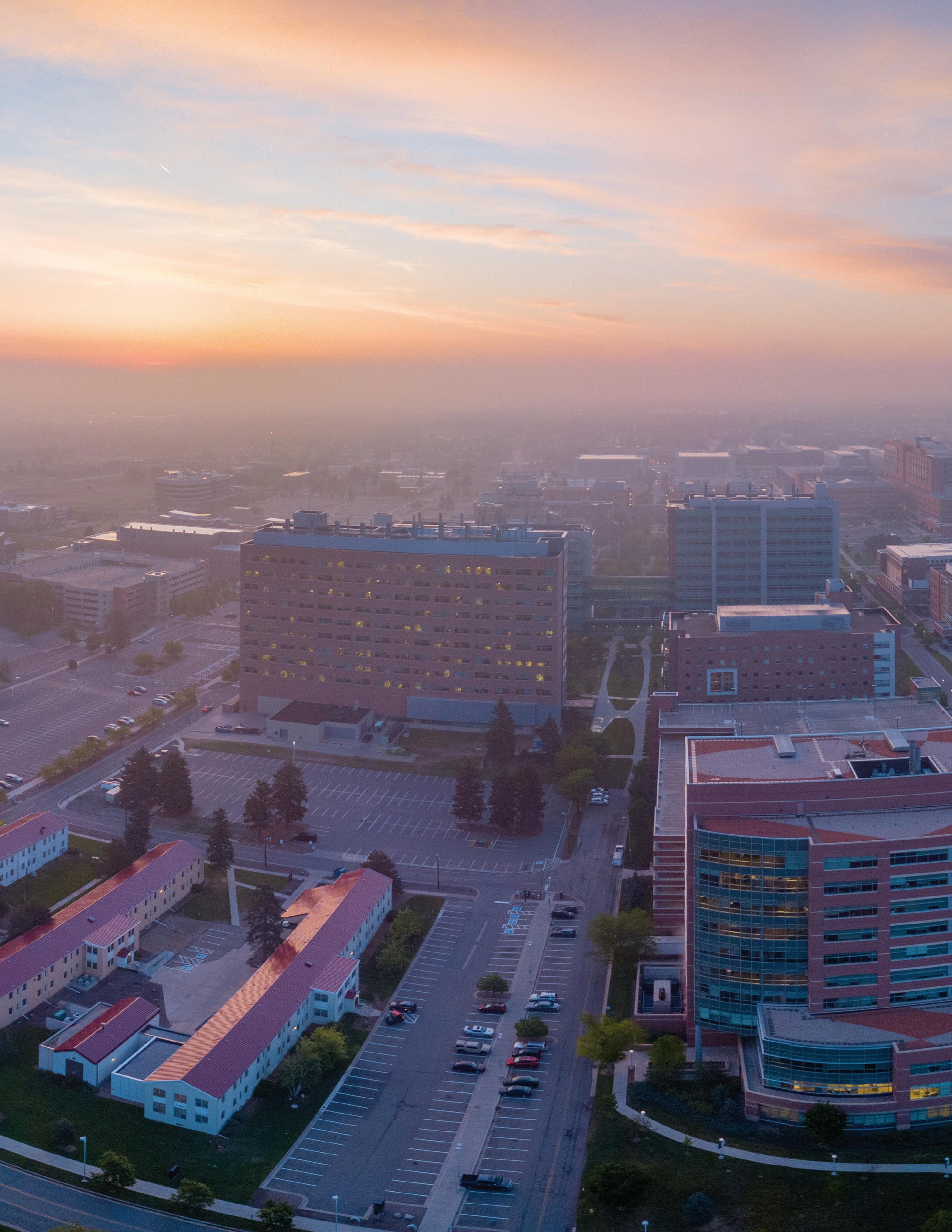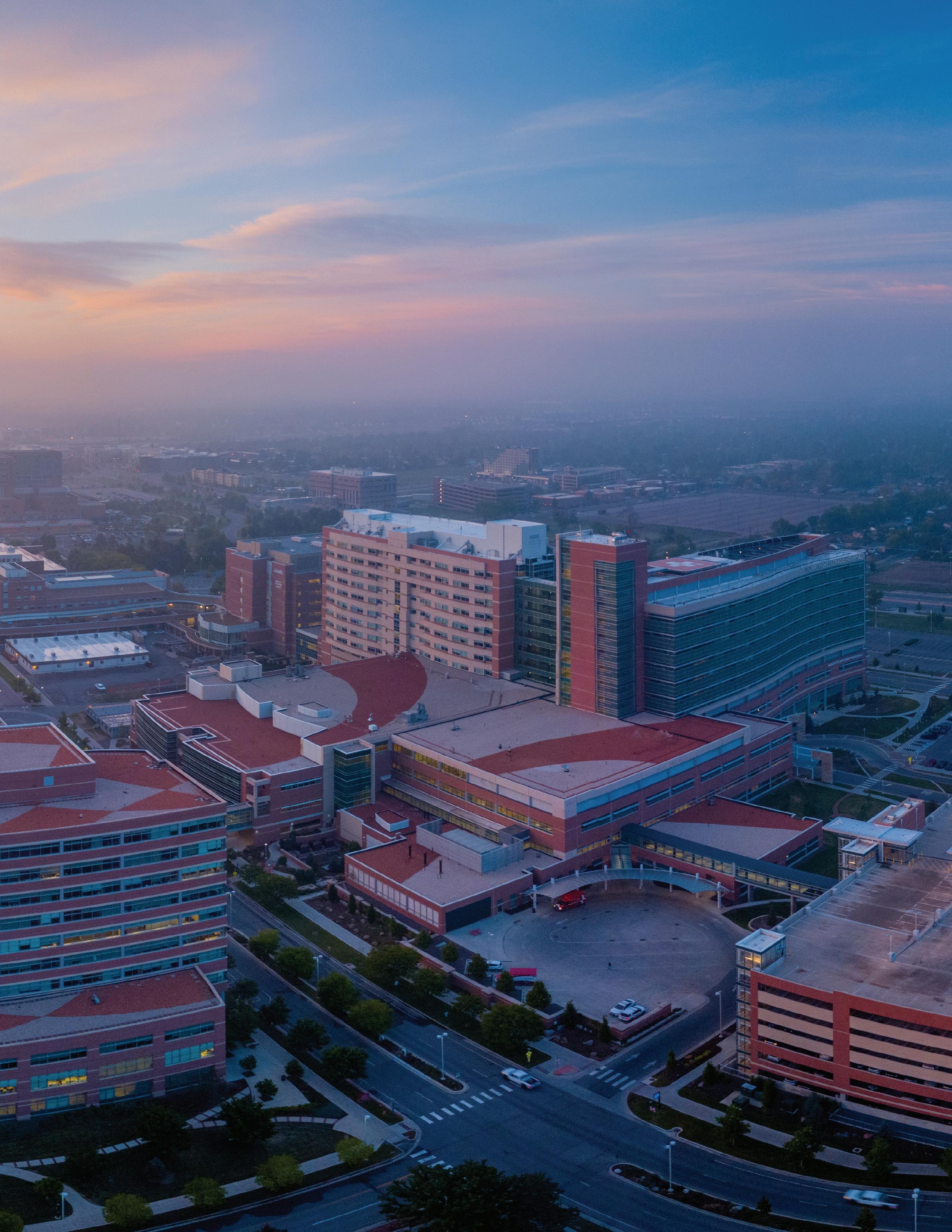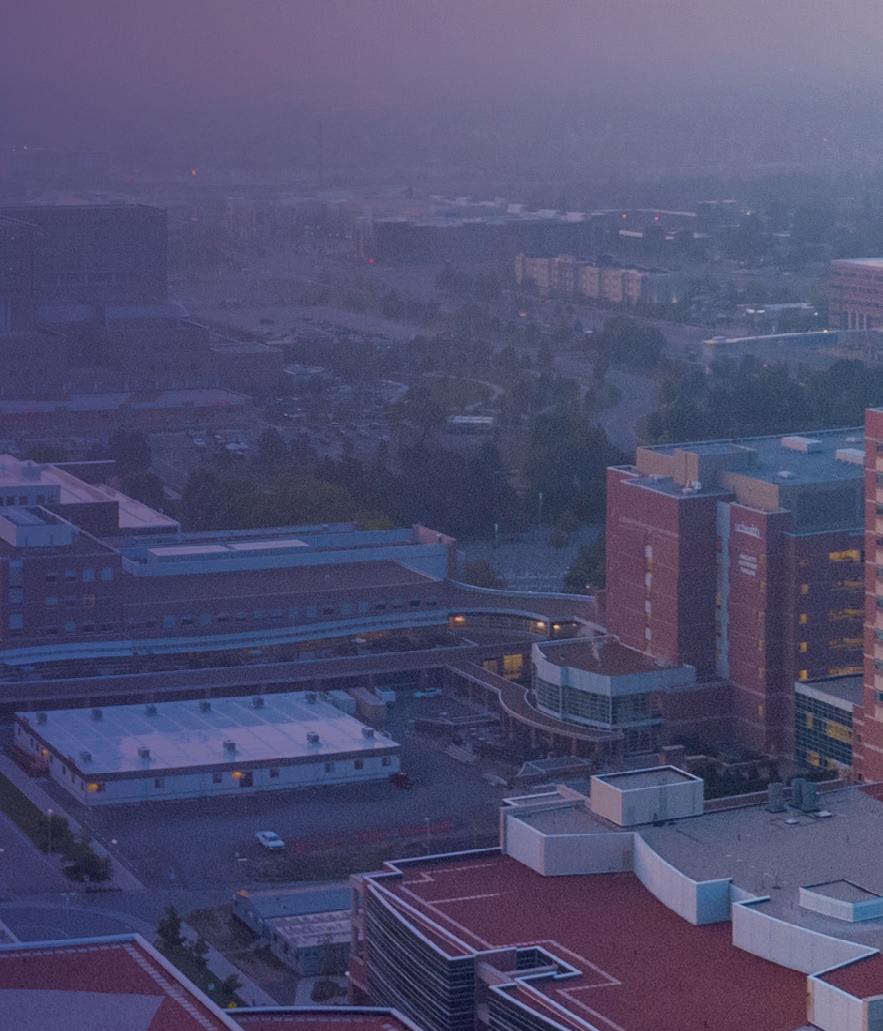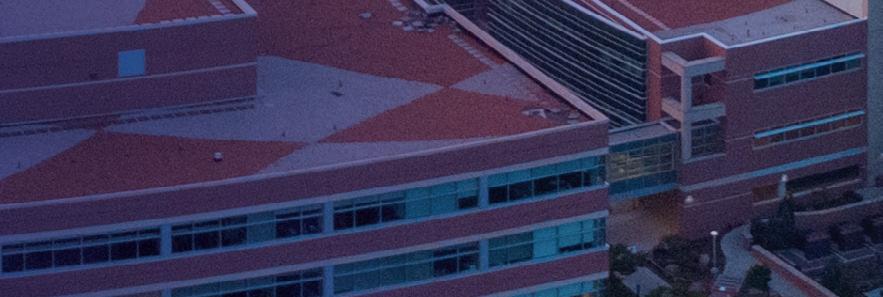YOU MAKE OUR WORK POSSIBLE






































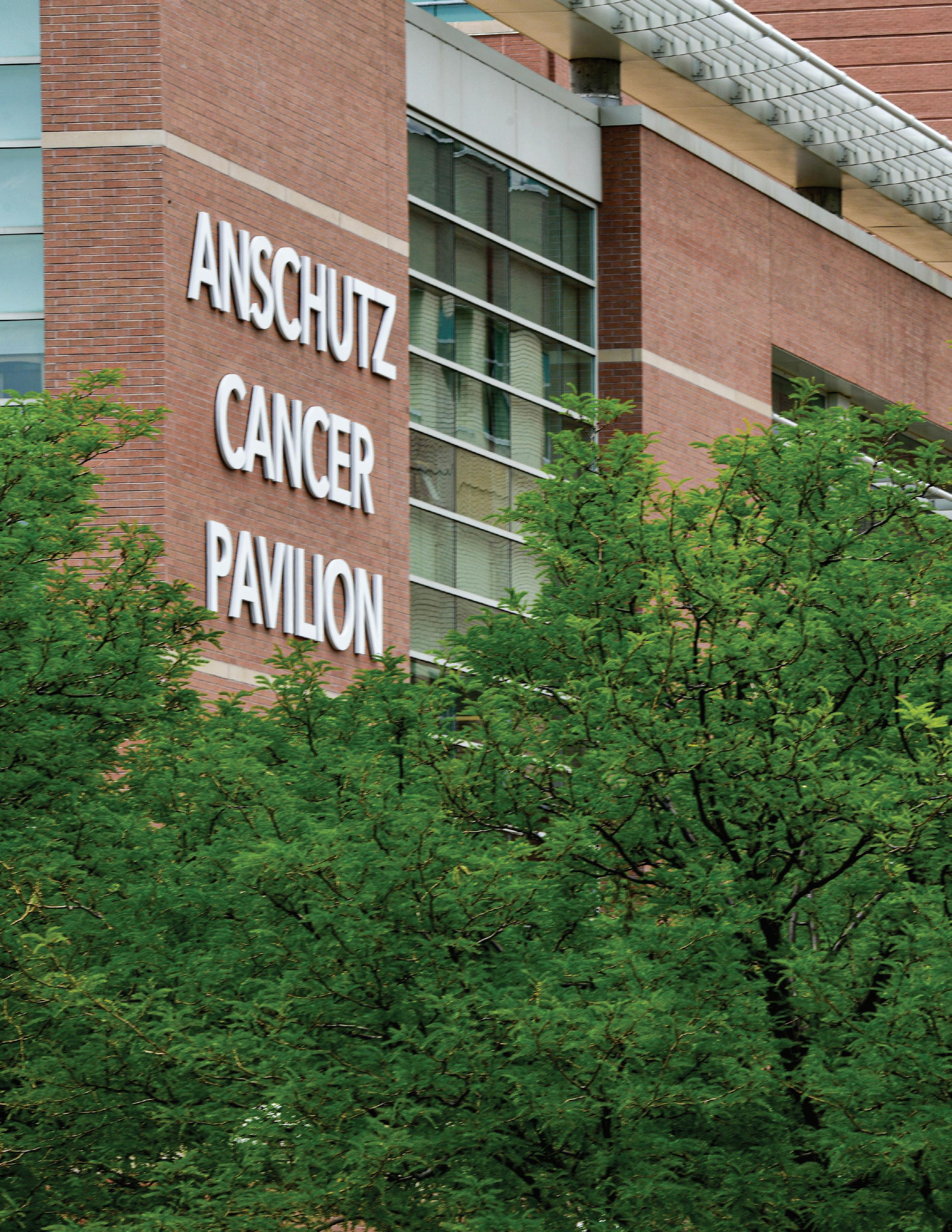 Dear Maureen Shul and the Wings of Hope for Pancreatic Cancer Research Community,
Dear Maureen Shul and the Wings of Hope for Pancreatic Cancer Research Community,
As we continue to research pancreatic cancer and treat patients with the disease, we often take time to reflect on the incredible importance of generous benefactors like you.
The partnership between the University of Colorado (CU) Cancer Center and Wings of Hope for Pancreatic Cancer Research over the past 10+ years has brought novel treatments into the world, improving the lives of thousands of patients and providing hope for their families.
Your support creates possibilities that wouldn’t have been imaginable before our partnership began. Each day, our researchers are hard at work making new discoveries about the nature of pancreatic cancer, conducting clinical trials to test their theories, and creating new methods of detection and therapies that change – and save – many lives. Your commitment makes it all possible.
We know that a family connection to pancreatic cancer makes this research significant to you. Channeling your personal experience into a dedication to helping us improve the lives of patients is unique and meaningful. Your unwavering support of pancreatic cancer research at the CU Cancer Center is truly inspiring.
Enclosed is an update on the progress we’ve made in the last few years, thanks to your gracious contributions. Words cannot fully describe our gratitude for your partnership on this journey toward improving as many lives as possible and, ultimately, finding a cure for pancreatic cancer. It is not an exaggeration to say that you’ve changed thousands of lives for the better, and we can’t thank you enough for your compassion, generosity and spirit.
Warmly,
 Richard D. Schulick, MD, MBA, FACS Professor & Chair of the University of Colorado Department of Surgery Director of the University of Colorado Cancer Center The Aragón/Gonzalez-Gíustí Chair
Richard D. Schulick, MD, MBA, FACS Professor & Chair of the University of Colorado Department of Surgery Director of the University of Colorado Cancer Center The Aragón/Gonzalez-Gíustí Chair

OUR CONTINUING JOURNEY – 2019-2022
$50,000
Sana Karam, MD, PhD, and Karyn Goodman, MD, led a study to determine the therapeutic effect of targeting certain pathways in pancreatic cancer radiation therapies. Blocking speci c pathways can improve outcomes, prevent adaptive resistance and decrease normal tissue toxicity.
$50,000
Led by Cindy O’Bryant, PharmD, we discovered for the rst time that bitter melon juice (BMJ) inhibits tumor growth by helping to form new blood vessels. This information strengthens the case for further study of BMJ as a therapeutic treatment option, either alone or in combination with other treatments for patients with pancreatic cancer.
$50,000
Jung-Jae Lee, PhD, and Sana Karam, MD, PhD, are working to develop non-invasive, self-illuminating tools to help doctors with the accurate detection of pancreatic cancer at early stages. These tools will also help physicians monitor treatment and eventually improve survival rates. Drs. Lee and Karam are planning a clinical trial to test these tools.
$300,000

Dr. Karam’s Investigator-initiated trial (IIT) for research studying the use of targeted radiation therapy in combination with a therapeutic that inhibits the STAT3 protein from promoting tumor cell survival in pancreatic cancer.

$50,000
Carlo Marchetti, PhD, and Todd Pitts, PhD, completed a study examining the role of the protein coding gene NLRP3 in pancreatic cancer progression and immune cell activation/migration.

2019
2021
$109,000
A new immunotherapy regimen designed to activate cancer- ghting cells while allowing cancer cells to expire naturally, led by Dr. Karam.
$80,000
Research into blocking the CD93 pathway to the pancreas, which cancer cells use to evade therapies. This will improve the ef cacy of immunotherapy and chemotherapy. Led by Yuwen Zhu, PhD and Sana Karam, MD, PhD.
$25,000
Research into battling CHD1L, a protein that causes drug resistance in many pancreatic cancer patients.
Daniel LaBarbera, PhD, and Natalie Serkova, MSc, PhD, have developed OTI-611, which has shown promise for inhibiting CHD1L. This treatment could lead to new therapeutic strategies for pancreatic cancer patients to prevent and treat tumors and improve mortality rates.
$25,000
Research into arti cial intelligence (AI) technology that can be used to improve patient outcomes. David Thomas, PhD, and Danna Gurari, PhD, are creating methods of using AI to predict where a patient’s pancreas will lie in their body on a given day. Knowing precisely where the pancreas is located will increase safety and accuracy in medical imaging and radiation therapies.
Adam Mueller, MD, PhD, a postdoc alumni of Dr. Karam’s lab, established a laboratory in pancreatic research at Thomas Jefferson University and began a collaboration with Verra Therapeutics to begin clinical trials.

Miles Piper, a research assistant in Dr. Karam’s lab, is applying to the MD/ PhD program at CU Anschutz, with a career goal to continue in the eld of pancreatic cancer research.


2022
Wings of Hope has been directly in uential in the mentorship track and career development of students, including:
We thank the Wings of Hope benefactors for their generous contributions to our research. The continued support of research is essential for the development of more effective pancreatic cancer treatments. This funding has allowed us to build on our prior research in Computer Vision (Gurari lab) and pancreatic tumortracking research (Thomas lab). We are excited to apply recent advances in the field of AI to pancreatic cancer treatment, combining the expertise of computer scientists and medical physicists with the aim of increasing the quality of radiation therapy and reducing the chance of side effects.”
–David Thomas, PhD Associate Professor, Radiation Oncology

As the coordinator for the Pancreas Cancer Multidisciplinary Program, it has been an honor to work with the Wings of Hope for Pancreatic Cancer Research. This organization has been instrumental in helping the CU Cancer Center accomplish its mission of conquering pancreas cancer. With the help of their fundraising, where 100% of their proceeds go to our pancreas cancer program, we have been able to dedicate our efforts toward innovative pancreas cancer research. The CU Cancer Center is lucky to have this partnership, for we both want to achieve the same goal: finding a cure for pancreas cancer.”
–Cheryl Meguid, DNP, MSN, MBA Director, Pancreatic Cancer High Risk Screening Clinic Regional Medical Director, Oncology Multidisciplinary Programs, Pancreas Biliary Cancer Multidisciplinary Clinic Coordinator

The support from the Wings of Hope for Pancreatic Cancer Research allowed two researchers with different backgrounds to work together and help move the next generation of therapies from laboratory discovery into clinical research. This type of collaboration would not be possible without the funding provided by Wings of Hope.”
 –Todd Pitts, PhD Assistant Professor, Medical Oncology
–Todd Pitts, PhD Assistant Professor, Medical Oncology

Wings of Hope has made a significant impact on pancreatic cancer research in Colorado. From bringing together researchers from disparate fields, to putting the best minds at work in pancreatic cancer, to performing basic research resulting in top tier publications, to supporting first in human clinical trials, Wings of Hope has changed the face of pancreatic cancer research at the CU Cancer Center.”
–Heide Ford, PhD Professor and University of Colorado Medicine Endowed Chair in Pharmacology


We are very thankful to Wings of Hope for Pancreatic Cancer Research for their support of our project. Our efforts are focused on identifying new treatments for this devastating disease, and your support is instrumental to achieving this goal.”
–Carlo Marchetti, PhD Assistant Professor, Infectious Disease

A frontline treatment for pancreatic cancer patients is chemotherapy, which is often ineffective due to drug resistance. Our drug shows promising efficacy in tumor cell models in animals against several different cancers. The drug also strongly synergizes with chemotherapy and other therapies, improving their efficacy, including those frontline therapies for pancreatic cancer. We are so grateful for Wings of Hope’s support, which is critical to help generate key data to advance the development of this novel targeted drug therapy for pancreatic cancer patients.”
–Dan LaBarbera, PhD Professor Director CU AMC Center for Drug Discovery, Co-Director, Drug Discovery and
 Department
Department
Development Shared Resource (D3SR)
of Pharmaceutical Sciences
–Natalie Serkova, MSc, PhD Professor, Radiology Deputy Associate Director

of Shared Resources, CU Cancer Center
Support from Wings of Hope has been crucial in enabling our lab to make significant progress in pancreatic cancer research. We developed new imaging modalities for identifying pancreatic cancer at early stages and conducted successful image-guided surgeries with animals. These findings could be translated to clinical use in humans, and we believe this breakthrough has enormous potential to enhance patient outcomes and improve the survival rates of this disease.
We are optimistic that our probes have the potential to revolutionize cancer diagnosis and treatment, and that they could have a profound impact on patient outcomes and survival rates.
We are grateful for your continued support and look forward to continuing our mission of finding new diagnoses for cancer patients.”
–Jung-Jae Lee, PhD Assistant Professor, Department of Chemistry

Thanks to Wings of Hope we were able to test a broad range of ALDH inhibitors against pancreatic cancer cell lines in different lab models and published the work, so it is available to investigators all over the world. However, we did not take it forward into clinical trials due to the relatively modest activity of the inhibitors, which shows an important aspect of laboratory testing—stopping development of agents that don’t have sufficient efficacy so that patients only receive the most promising novel drugs in clinical trials, and don’t waste their valuable time trying inferior drugs. Wings of Hope makes discoveries like this possible.”
–Wells Messersmith, MD Professor and Head, Medical Oncology Associate Director for Clinical Services, CU Cancer Center Chief Medical Officer of Oncology Services at UCHealth

With funding support from Wings of Hope, our lab was able to find a pathway in CD93 that contributes to the immunosuppressive tumor microenvironment. This finding has been exclusively licensed to a startup company in Boston, and a first-in-class drug targeting this pathway in solid cancers just started its Phase 1 trial in late 2022. We are hoping that our current studies of this pathway supported by this newly awarded grant can generate sufficient evidence to convince this company or others to apply this new therapy to pancreatic cancer.”
–Yuwen Zhu, PhD Associate Professor, Surgical Oncology







































 Dear Maureen Shul and the Wings of Hope for Pancreatic Cancer Research Community,
Dear Maureen Shul and the Wings of Hope for Pancreatic Cancer Research Community,
 Richard D. Schulick, MD, MBA, FACS Professor & Chair of the University of Colorado Department of Surgery Director of the University of Colorado Cancer Center The Aragón/Gonzalez-Gíustí Chair
Richard D. Schulick, MD, MBA, FACS Professor & Chair of the University of Colorado Department of Surgery Director of the University of Colorado Cancer Center The Aragón/Gonzalez-Gíustí Chair










 –Todd Pitts, PhD Assistant Professor, Medical Oncology
–Todd Pitts, PhD Assistant Professor, Medical Oncology




 Department
Department










